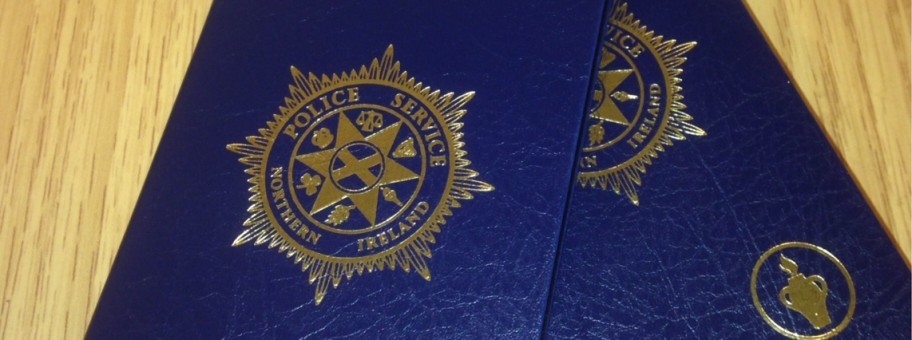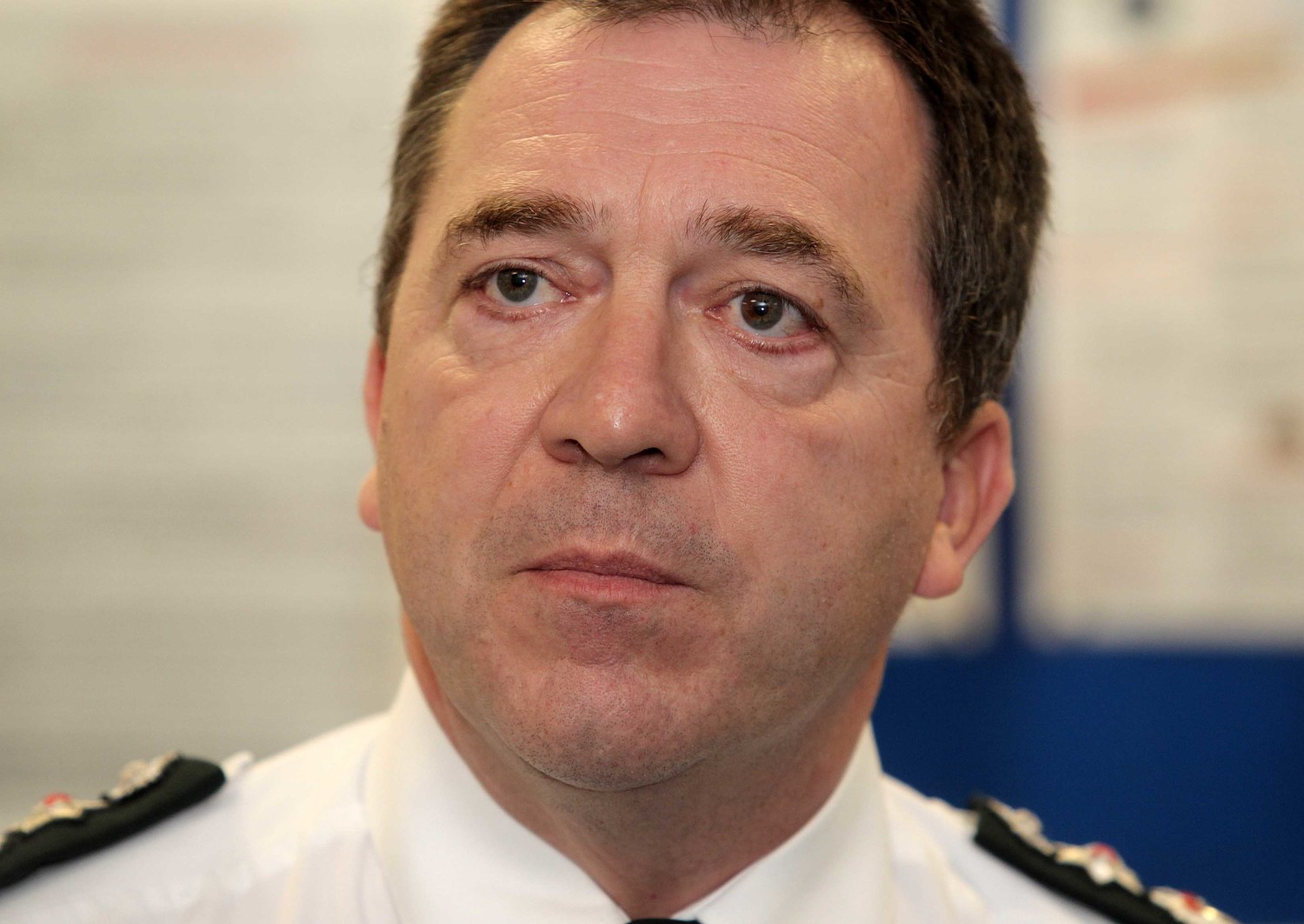The Police Service of Northern Ireland is facing criticism that it breached its own safeguards after it allowed the PSNI crest to be used on Christian bibles without equality assessments being carried out.
A leading academic and trade union have both questioned whether it was appropriate for the PSNI to allow its police crest to be printed on Christian bibles being offered to police staff without equality screening tests having been undertaken.
A key part of employment protection, introduced following the signing of the Good Friday Agreement in April 1998, included legislation for public sector organisations to safeguard religious equality in the workplace.
Section 75 of the Northern Ireland Act (1998) compels public bodies here to consider how to promote equality of opportunity and good relations, including between staff.
Government institutions, such as the PSNI, are legally obliged not to discriminate in the workplace or give preferential treatment on the grounds of religious or political opinions.
Similarly the sex, race, ethnic origin, age, marital status, disability or sexual orientation of any PSNI employee should not be a bar to equality of opportunity.
As part of the legislation public bodies are required to undertake an Equality Screening process to assess whether or not any proposed policy or decision could breach Section 75 safeguards.
If it is judged that the decision may have Section 75 implications a full Equality Impact Assessment (EQIA) should then be undertaken.
The Detail has discovered that prior to leaving office earlier this year then Chief Constable Matt Baggott approved a decision to allow the PSNI crest to be carried on bibles, which the Christian Police Association (CPA) and Gideons’ association had requested permission to distribute to all police employees.
The decision, which was taken in March 2012 but is only now being revealed, was approved by Mr Baggott at a time when he was not only chief constable of the PSNI but also president of the Christian Police Association.
The Gideons’ association is well known for distributing bibles in hotels, prisons and hospitals across the world.
Membership of the organisation is open to professional male members from Protestant/evangelical churches over the age of 21.
However the Gideons’ practice of distributing bibles in some public institutions has caused controversy.
In 2011 a number of schools in Britain said they would no longer allow Gideons’ bibles to be distributed on school properties because of concerns that it breached religious equality guidelines.
In 2012 the Gay Police Association (GPA) objected to the association’s bibles being distributed throughout police forces in Scotland because of what it claimed was homophobic bias within the religious text.
The Northern Ireland Policing Board is charged with scrutinising all policy decisions adopted by the PSNI.
However, a Policing Board spokeswoman told the Detail that it had not been informed of the decision to allow the PSNI crest to be used on Gideons’ bibles distributed to staff.
A similar offer of crested bibles was offered to police forces across the UK.
The Detail contacted 48 police forces in Britain to ask if they had accepted the offer of police crested bibles to be distributed to employees.
To date 25 forces have responded, with 17 confirming that they had turned down the offer while eight forces said that they had accepted the police crested bibles.
Rory O’Connell is Professor of Human Rights and Constitutional Law at the University of Ulster’s Transitional Justice Institute.
The UU academic does not believe that the decision to offer bibles to PSNI staff breached anti-discrimination legislation (Fair Employment and Treatment Order).
However he is concerned that the PSNI decision to allow its police crest to be used on religious material did raise potential equality issues.
He said that non-Christian police officers and civilian staff members could perceive the decision to allow the PSNI crest to be used on bibles as an official endorsement of one preferred religion.
“For individuals, voluntary associations or private organisations to promote religious literature is part and parcel of freedom of religion, but a public authority is in a different position.
“As well as the Fair Employment principle of non-discrimination, there is a wider duty under Section 75 to consider how to promote equality of opportunity. I would think that for the PSNI to put a crest on a religious text and to presumably facilitate distributing them, might raise section 75 issues, both as regards equality of opportunity as between persons of different faiths and also as with persons of no faith,” he said.
“Section 75 legislation sets out that the PSNI had a duty to explore whether or not this promoted equality of opportunity between Christians and non-Christians, or people of no faith.”
PSNI statistics reveal that non-Christians or people from ethnic minority communities only make up a tiny fraction of those employed by the police service in Northern Ireland.
The PSNI employs a combined total of 9,254 police officers and staff, with 48 of these individuals coming from ethnic minority communities.
Catholic and Protestants account for 98% of police officers/staff within the PSNI.
However Professor O’Connell says the fact that people from ethnic communities only make up a small number of those employed by the PSNI should not excuse the police service from adhering to its equality obligations.
“The key point is that, as a legal duty, public authorities need to explicitly consider and always be alive to any possibility of equality implications in discharging their functions, even though this may not be obvious or may be obscured because of something which they take for granted.
“The principle is one of equality of opportunity and not one of straight forward majoritarian values.”
Northern Ireland Public Service Alliance (NIPSA) spokesman Ryan McKinney, whose trade union represents 1,200 civilian police workers, said that many PSNI employees had concerns over the apparent decision to endorse a religious text.
“I don’t think it is appropriate for a public sector organisation such as the PSNI to appear to promote or to give official endorsement to any single religion,” he said.
“Some NIPSA members have expressed concern that this may give the wrong impression to the public and in particular non-Christian communities whom they serve and are surprised that this was not considered by the PSNI.
“The public do expect an independent policing service and the decision to produce bibles with the PSNI crest will create some confusion about this independence and question the ethos of the organisation."
Christian Police Officers Association executive director Don Axcell said he did not believe that the use of the PSNI crest breached equality legislation.
“When the Gideons’ organisation in the UK mooted the idea of putting a force crest on the front of a Pocket Testament, they were advised that they needed to contact each force to gain permission before going to print. It is our understanding that they did this. There is no cost to the individual force.
“Most, if not all forces have a Diversity Consultation Board in one form or another, chaired by a member of ACPO (Association of Chief Police Officers) rank, they are made up of representatives of the various Diversity Staff Support Groups and Staff Associations.
“Any diversity or equality concerns that a particular group might have are aired in this forum and dealt with. It is our experience that these work very well.
“To my knowledge, there has never been any question of equalities legislation being breached as the same facility would be offered to any other group that requested it.”
A PSNI spokesman confirmed that Mr Baggott had approved the request to supply PSNI crested bibles to employees.
Despite the decision being taken in March 2012 he said the matter is only now to be raised for ratification at the next Diversity Strategic Steering Group meeting, a date for which has yet to be confirmed.
The spokesman said that Gideons International had met the cost of the crested bibles.
“This PSNI crested Testament was part of a wider Gideon initiative within the UK to offer similar police crested material to all UK police forces,” he said.
“The Testament is available to serving members of the PSNI, both police and police staff, and is offered as a free gift for personal retention without obligation to accept it.”
However, the PSNI spokesman said that no equality screening or impact assessment had been carried out to determine whether or not the decision to allow the force’s crest to be used on the religious text was in breach of Section 75 legislation.
“An Equality Impact Assessment was not carried out for this as the free gift was offered for personal retention and there was no obligation for anyone to accept it.
“No action is needed from any officer or member of staff who decide of their own free will not to accept the offer.”
The Detail attempted to contact Mr Baggott through the Christian Police Association, PSNI and the Association of Chief Police Officers but he was not available for comment.

